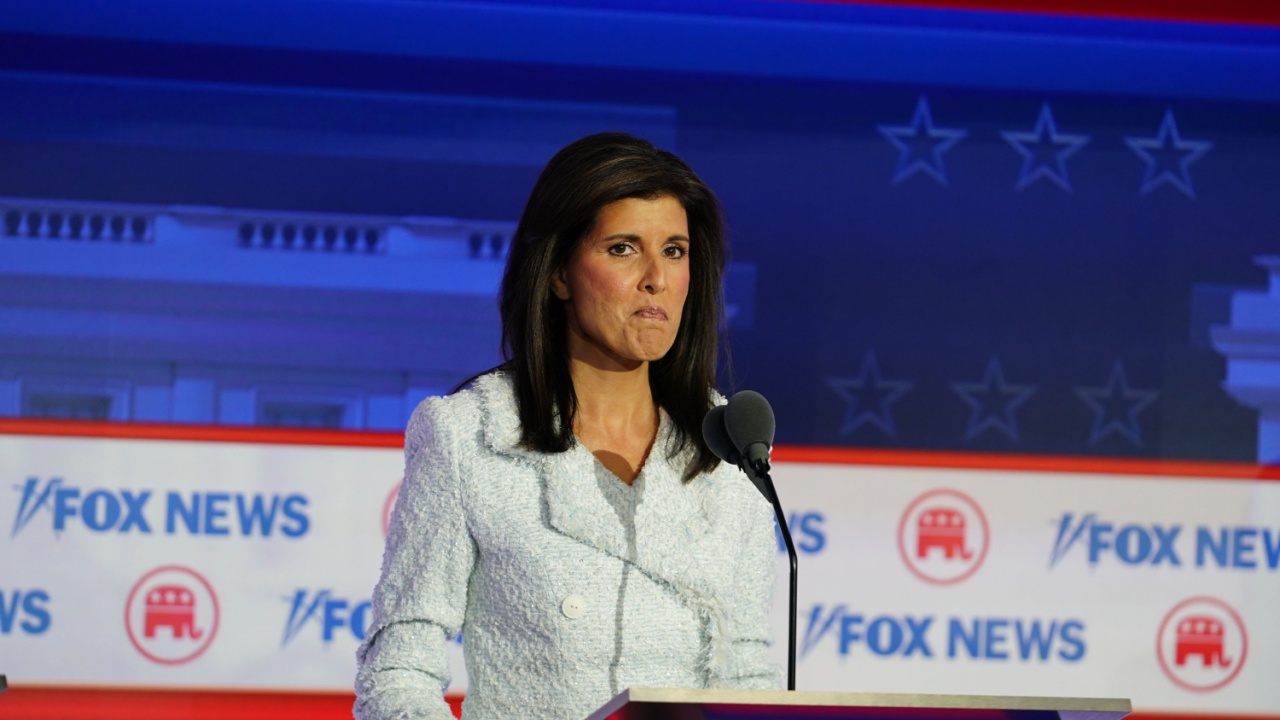Are Nikki Haley Voters in Denial?

Nikki Haley has suspended her campaign for the Republican nomination, after a slew of landslide Super Tuesday victories confirmed that Donald Trump would be effectively unbeatable.
Haley was the first semi-serious contender to declare against the former president, and, despite lagging in performance behind later arrivals, she was the last to hold out. It took a near-shutout in the fifteen Super Tuesday contests to make the math clear. Only in Vermont did Haley clinch an upset victory, and even there by a mere four points. A few days earlier, she had won the Washington, D.C. primary with 62.8 percent — that is, a total of 1,274 votes.
In the final tally, though, Nikki Haley’s supporters comprised a sizable minority, totalling just under 3 million voters across all primary contests. In Michigan (the only major swing state in which the two faced off), the South Carolinian claimed 26.6% of the vote — a poor showing for the candidate herself, but more than a large enough voting bloc to swing the results of November’s general election.
Understanding these voters and their motivations, then, will be crucial in charting the path forward.
There are the obvious divisions, confirmed by exit polling in virtually every state. Haley did best in wealthier areas among highly educated voters whose chief concern is foreign policy. Trump’s strength was in working-class districts among non-college voters who identified as religious and conservative. The demographic explanation, though, is not sufficient, however valuable it may be.
As The Federalist’s Sean Davis pointed out on Wednesday, there are two heavily overlapping groups of voters that went for Haley by wide majorities: those who approve of Biden’s job as president, and those who are satisfied with the direction of this country. Of the former, 92% cast votes for Haley in the GOP primary. Of the latter, it was an astonishing 87%. Trump won wide margins with those who are dissatisfied (60%) and those who are angry (83%) about the way things are going in the United States.
A substantial portion of the Trump-skeptical Republican vote, then, is made up of those who are content with the status quo: who have reconciled themselves to the Biden presidency and are happy to carry on with politics as usual. Put another way, Haley’s base seems to be composed of those voters who cannot or will not view their political enemies as just that — as an existential threat to the American regime, rather than merely friendly opposition. As Tom Klingenstein has noted often, “You don’t win a war if you don’t know you’re in one.”
As Glenn Ellmers and Ted Richards of the Claremont Institute recently argued in an essay on this site, America is well on its way to a kind of despotism that is effectively unique in world history. This new tyranny — what Ellmers and Richards dub “Totalitarianism, American Style” — exhibits, in its own way, the traditional characteristics of a totalitarian regime: a brutal secret police cracking down on political opponents, a top-down command of information and narrative, an unfree economy, a uniparty, and more. It also exhibits tendencies that are unique to America or to the twenty-first century: the development of a global elite, the establishment of rule by regime “experts,” the intellectual destruction of old truths and traditions by postmodernism.
In the coming weeks, we look forward to publishing a series of nine essays that explore each of these aspects of our unique political threat in detail. A clearer picture of the threat we face may inspire new ways of thinking about the choices now before us. For now, a word from Lincoln: “If we could first know where we are, and whither we are tending, we could then better judge what to do, and how to do it. … In my opinion, [our trouble] will not cease, until a crisis shall have been reached, and passed. A house divided against itself cannot stand.“
Declan Leary is the editorial director of tomklingenstein.com and the author of Right from the Start: The Conservative Populists and the Fight for America’s Future, forthcoming from Regnery. He was previously senior editor of The American Conservative and editor-in-chief of The Dallas Express.